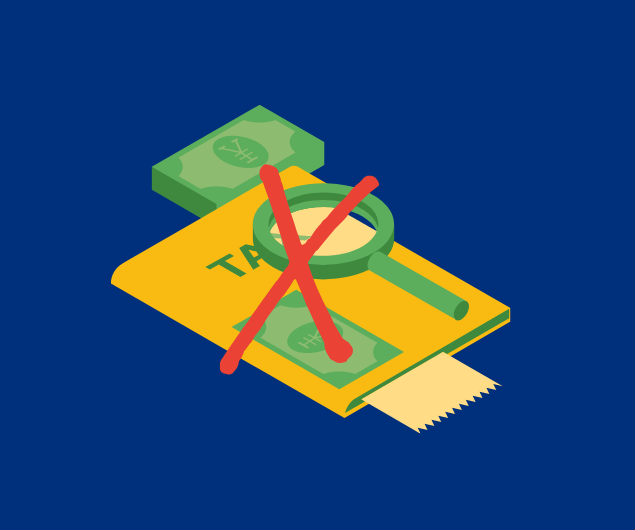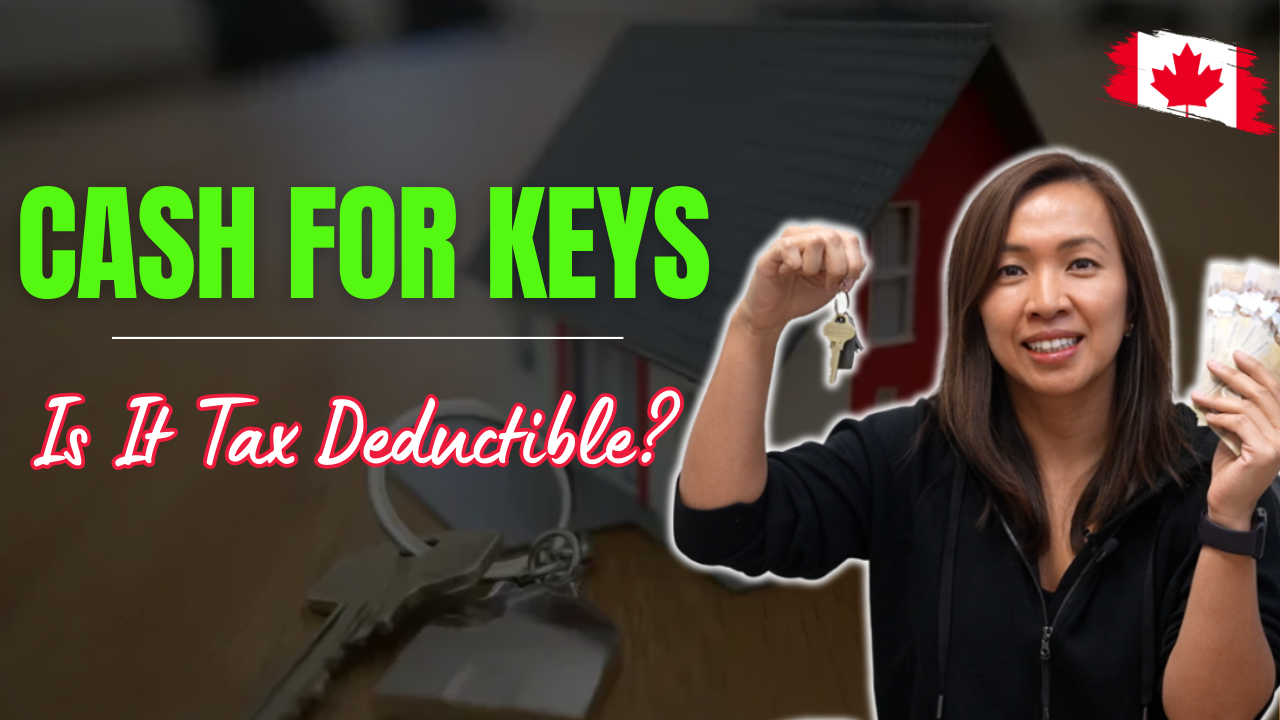Capital Gains Tax and your Rental Property
Are you worried about Capital Gains Tax when moving into your rental property as well? Recently, many of my clients have asked me about it. Some clients are in transition, staying in their rental properties until they move into their permanent home. And some have decided to move into their rental for good.
You may not be aware of this, but every time you change the use of a property…
Whether it is from primary residence to rental property, or from a rental property to primary residence
… you’re considered to have sold the property at its fair market value.
You are also considered to have acquired the property for the same amount. Fair market value of the property is based on the time of change.
In this video I talk about what this means in depth.
Example of Capital Gains Tax on Rental Property:
You buy a rental property worth $500,000. You rent it out for a few years. And then one day, you decide to move into it.
At the time of moving in, your property is valued at $600,000. In this case you’re deemed to have disposed of your property at $600,000. Hence, making a capital gain of $100,000.
Even though you never sold the property, you may be triggering a gain of $100,000 on your tax return.
Scenario 1: No capital cost allowance claimed.
If you have never claimed capital cost allowance against the rental income from prior years before you move into the property, you can elect to defer capital gain tax until you sell to pay with a 45(3) election.
Scenario 2: Capital cost allowance claimed
Say, you’ve claimed capital cost allowance on this property (CCA) against net rental income. You did this to offset some of the rental income from previous years.
In this case, unfortunately the election is not available for you. You’re required to report the $100K capital gain the year you move into your property.
Additionally, you would also have to add the accumulated CCA (also known as recapture) that you’ve claimed over the years to your income in the year you move into the property.
In most cases, our clients are shocked by the unexpected tax bill.
To qualify for 45(3) election,
- You cannot claim capital cost allowance on this property for any tax year after 1984 and on or before the day you change its use
- This election should also be filed together with
As a bonus to this election, assuming you qualify, you can also designate this property as your primary residence for up to 4 years, before you actually occupy it as your principal residence. Assuming you don’t have any other property designated as your primary residence during these 4 previous years.
What does this mean?
Let us look at this example:
You work in Toronto, currently renting a condo, making good money. However, Toronto housing prices have skyrocketed. And so, you venture out and decide to buy a property in your hometown Hamilton as investment property.
Your family lives in Hamilton, and it’s an easy commute for you. Maybe one day, you would move back to Hamilton, who knows?
You bought your investment property, and then rented it out for 5 years.
5 years later, you got a job offer in Hamilton. You decided that it is time to relocate and move to your rental property but you are worried about Capital Gains Tax.
What is the tax implication here?
We know that you would have reported income and expenses incurred on this Hamilton rental property for the 5 years.
If you claim capital cost allowance on this property, you would have to take the recapture on the capital cost allowance into income the year you move in.
You would also need to report the capital appreciation on your personal tax return the year that you move in.
However, if you did NOT claim any capital cost allowance on this rental property…
- There’s no recapture tax as you’ve never claimed CCA on this rental.
- You can file an election 45(3) to designate this rental property as your principal residence. As long as you didn’t own a primary residence, for up to 4 years before you moved in.
- You can defer at least one year of capital gain because you own the rental property for 5 years. You can also get 4 years of capital gain tax free as a result of the election to be filed.
Let’s say you already had a primary residence within the last 4 years. You would still be able to defer the gain tax on this rental property in Hamilton… until you sell it with this election.
In conclusion, don’t claim capital cost allowance if you have plans to move into a rental property!
Now let’s look at some common Q & A’s related to this…
Q1) Can you point out the right tax form to file?
Cherry: “You will need to file an election. The election should be sent in together with your tax return.”
Q2) If I claimed CCA in all five years owning the rental property, am I still able to claim the capital gains exemption for the past four years? Or does the exemption only apply if you haven’t claimed any CCA?
Cherry: “Unfortunately there is a deemed disposition and you will have to report recapture and capital gain on change in use.”
Q3) In your example above, do you recommend appraising the rental property at the end of year 4, to ensure that amount is not taxed on?
Or do you simply take the difference between purchase and sale, and divide by the years you own it? And then not pay tax for the first 4 years?
Cherry: “CRA does require you to take the average approach every time you use primary residence exemption.”
Hope this sums up most of your queries!
If you find yourself wondering if this applies to your individual situation, kindly contact a real estate accountant.
Make sure you watch the video to truly understand how to avoid capital gain tax when moving to a rental property.
P.S The original blog post here inspired this post.
Until next time, happy Canadian Real Estate Investing.
Cherry Chan, CPA, CA
Your Real Estate Accountant






jeg
Hi Cherry,
Thanks for the article,
Will these be similar for people looking to househack, say for example living in one of the units of duplex, triplex and fourplex and renting out the remaining units. Will the tax implications be the same or will it be different?
Cherry
Tax implication can be different when you live in a duplex in comparison with triplex and fourplex. You might have triggered capital gain if you change use. If you are in those situation, make sure you consult with a professional accountant.
shinnae33
Hi Cherry,
I really understand your expectations but If I have a own property (primary residence) more than 4 years after I move into rental property , you said I can defer tax until sell this rental property but no wave capital gain?
Cherry
Hi Shinnae, thanks for being here. Unfortunately this isn’t the right platform where I would be able to advise you about your personalized situation without knowing the specifics. For any questions or consultation, please contact our office at 416-548-4228 or email us at admin@cccpa.ca and we will be sure to take care of you. Thanks!
Didi
I have found your article very helpful. I bought a rental unit in august 2019. My tenant has decided to move out in may 2022.
I have not claimed CCA and have previously owned and sold my primary residence in 2018 before renting myself from august 2018 to present.
Would it be a more beneficial for me to continuing renting the unit or to move in myself?
Cherry
Hi Didi, thanks for being here. Unfortunately this isn’t the right platform where I would be able to advise you about your personalized situation without knowing the specifics. For any questions or consultation, please contact our office at 416-548-4228 or email us at admin@cccpa.ca and we will be sure to take care of you. Thanks!
Kelly Gill
Very interested Article, Mar 1, 2018 I changed my rental property to principle residence. I claimed cca apx 2000.00 on my rental property. I sold property in nov 2021. My accountant did not fill any election in 2019 return.Can i pay tax on cca $2000.00 in year 2018 now with penalties and trigger election 45(3) now in 2021. What process i have to go through now
Cherry
Hi Kelly, thanks for being here. Unfortunately this isn’t the right platform where I would be able to advise you about your personalized situation without knowing the specifics. For any questions or consultation, please contact our office at 416-548-4228 or email us at admin@cccpa.ca and we will be sure to take care of you. Thanks!